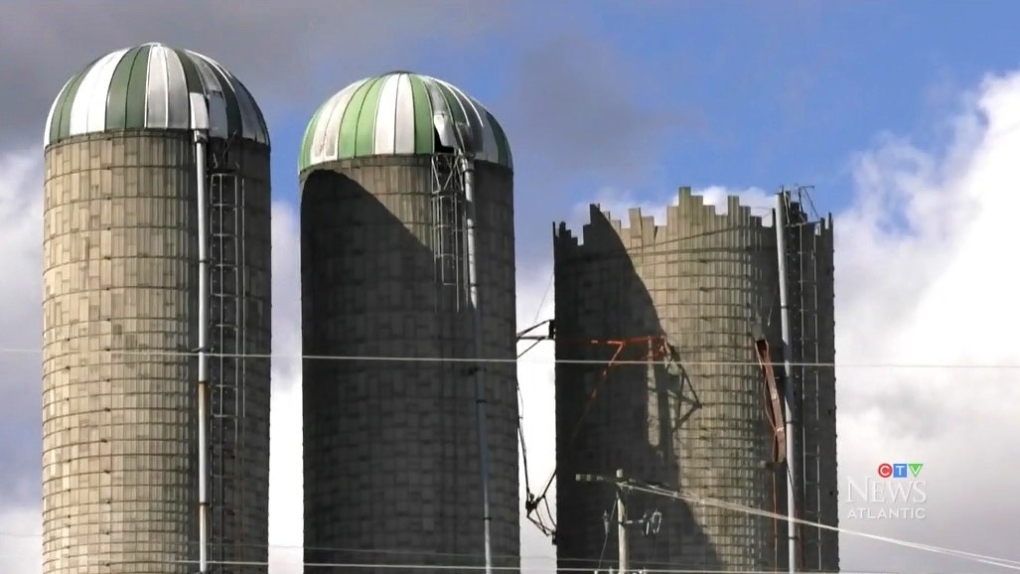The Nova Scotia Federation of Agriculture says provincial money to help primary industries recover from post-tropical storm Fiona is good news.
“This announcement underscores the importance that has been given to the concerns and impacts raised by our farmers, industry partners and the Federation,” Katherine Tuttle, Federation Communications Coordinator, said in an email to CTV News. .
Nova Scotia Premier Tim Houston announced a package of financial support for the agriculture and forestry sectors on Friday.
“Our resource-based sectors are critical to the health of our economy, especially in rural Nova Scotia,” Houston said in a government news release. “They need our support right now as they recover and rebuild after the storm.”
The province says relief programs for the agricultural sector include:
- A one-time $2,500 grant that will be sent automatically to registered farms in central, northern and eastern Nova Scotia that have suffered financial loss due to infrastructure or crop damage, livestock loss or prolonged power outages due to the hurricane.
- The government is also providing $6 million through the Agricultural Response Program to cover extraordinary operational costs incurred due to the storm. Up to an additional $9 million will be available if needed in the weeks and months ahead.
According to the province, the Nova Scotia Crop and Livestock Insurance Commission is waiving interest on overdue accounts for September. While the Nova Scotia Agricultural Loan Board offers its clients payment deferrals and offers low interest working capital loans.
There are also federal-provincial cost-shared assistance programs for the agricultural sector, the province says. These include:
- The new on-farm electricity interruption program that provides $500,000 in federal and provincial funding through the Canadian Agricultural Partnership. It helps offset costs for farm owners who installed a backup electric generator immediately before Hurricane Fiona or during the extended power outages it caused.
- AgriInsurance, which provides crop insurance for natural production losses. Hurricane damage is an insured event for those enrolled in the program.
- AgriStability which provides income loss protection of more than 30%. Farm businesses enrolled in the program can apply for an interim payment of 75% of their estimated benefit.
- The AgriRecovery framework which focuses on the “extraordinary” costs producers face in recovering from a disaster. The province says it has requested an assessment of AgriRecovery by the federal government to determine what support is needed.
- AgriInvest — a government-matched producer savings program. Producers can access the funds accumulated in their AgriInvest accounts at any time to meet their immediate needs.
The province says it is also spending up to $4.6 million to help private woodlot owners clear downed trees and those left bent, weakened or vulnerable by post-tropical storm Fiona in preparation for reforestation. The province says this includes:
- $150,000 that will help the Department acquire satellite imagery to help assess the damage
- up to $3.45 million to help with commercial tree cleanups and find a third-party organization to oversee this financial assistance; the organization’s work will include assessing damage to determine eligibility and conducting post-cleanup inspections before funds are disbursed
- up to $500,000 to help repair washed-out access roads, culverts and bridges
- up to $500,000 to help restore boundary lines.
The province says there will be a cap, yet to be determined, on the amount of money a property owner can receive.
The government says the Department of Natural Resources and Renewable Energy expects to set up a third-party organization to begin working with woodlot owners in early November.
The province says more information about eligibility and application will be posted online as it becomes available.











More Stories
Sri Lanka’s post-harvest losses in agricultural sector exceed Rs. 55 billion – – The island
SAU Vice-Chancellor emphasizes effective research in agricultural sector
Agriculture sector threatened by climate change, expert says – Pakistan